'Unlike the Chinese army that has been largely a peace time force, the Indian Army is a battle hardened force,' explains Colonel Anil A Athale (retd).
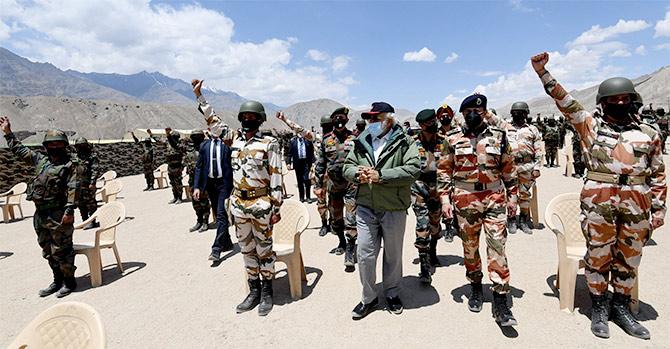
- Part 1: China can't browbeat India
One is curious to know what the Chinese were smoking when they took the decision to go all aggressive on several fronts.
All that this has done is provoke a backlash against China for its numerous omissions and commissions on the spread of the coronavirus.
The degree of support India has received (overt and covert) from countries far and near is proof.
The Chinese seriously miscalculated the institutional strength of the American military.
As the US election day nears and the current president starts to look like a lame duck, these institutions will assert themselves even more.
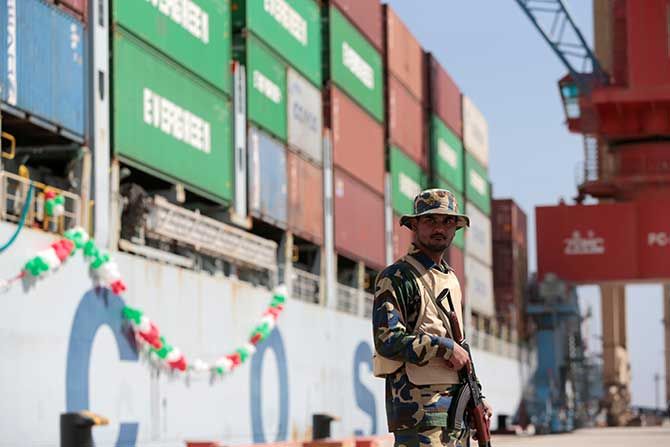
Whatever the declared intent and offensive strategy vis a vis Pakistan, India has no interest in taking over that country.
India is a territorial status quo power even in Kashmir and logically has no interest in posing a threat to the China Pakistan Economic Corridor passing through Gilgit-Hunza under Pakistani occupation.
India's aggressive posture against Pakistan is tactical in order to create a deterrence against Pakistani interference in the Kashmir valley.
Irrespective of the vocal posture, no political party in India wants a 'United India' that consists of Pakistan as that will upset the demographic balance and create more headache due to the infusion of extremist Islam.
China should be well aware of this.
Even the threat to Gwadar port posed by Baluch insurgents and possible Indian support is directly related to Pakistani support to Kashmiri militants.
Stop one and the other will also reduce, if not end.
Chinese fears of a threat to the CPEC are imaginary and exaggerated given the difficult terrain in north Kashmir.
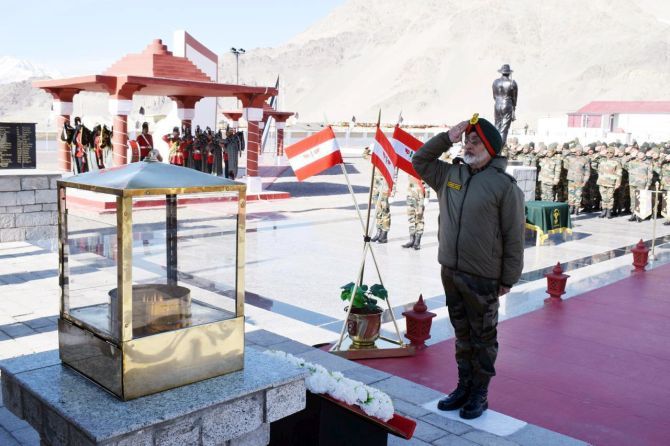
Neither is India in a position to pose a threat to the Aksai Chin highway between Sinkiang and Tibet.
India has shown its tacit acceptance of Chinese possession of that part of Aksai Chin.
India's posture in Ladakh is purely defensive.
It is true that China has indeed drawn away some of the reserves from the Pakistan front, but the forces oriented to fight in the plains remain in position.
Unfortunately for Pakistan, that country lacks strategic depth.
Its main cities, population centres and main recruiting areas in Punjab are well within Indian artillery range.
If a joint Sino-Pak military adventure is to take place in Ladakh or the Gilgit sector, the conflict will not remain confined to the mountains, but will surely spread to the plains of Punjab.
The Pakistani coastline is also vulnerable to the much more powerful Indian Navy and will not escape punishment.
The Chinese calculation regarding the economic costs is true for both sides.
While for India the logistics pose a tactical problem, for China, the logistics chain stretches over 2,000 kms to its main miitary bases.
Tibet and Xinjiang are bereft of any local resources and even a pin has to be transported over thousands of kilometres.
In the post pandemic world of slow economic growth, China will also have to pay a heavy cost of deployment on a live border.
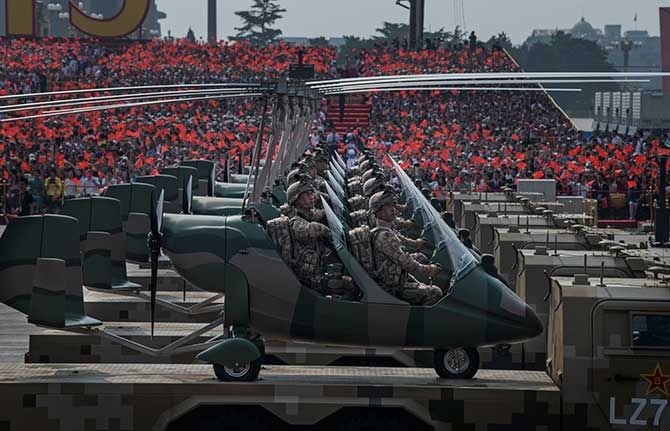
On paper, the Chinese armed forces do look more formidable than Indian.
But in terms of equipment fielded, the technology edge seems to be in India's favour.
Indian tanks and anti-tank missiles are far superior to the Chinese version.
In addition, unlike the Chinese army that has been largely a peace time force, the Indian Army is a battle hardened force.
If history is to be any guide, even in 1962, the outgunned and outnumbered Indian Army gave a good account of itself in Ladakh.
The real rout was in the East, in Arunachal Pradesh.
As a researcher of that conflict, one can vouch for the fact that much of that disaster was due to the command failure of one man, Lieutenant General B M Kaul.
China seems to be miscalculating on the Indian internal scene as well.
In the post-Independence era, Indians have shown that in times of crisis, they stand as one.
The Chinese seem to mistake the 'noise and din' of Indian democracy to be a sign of internal discord.
As to the Kashmir situation, India is well poised to gradually restore statehood and regional autonomy sooner than the Chinese expect.
Devolution of power to the states has been the hallmark of Indian democracy and it is this that has held the diverse country together.
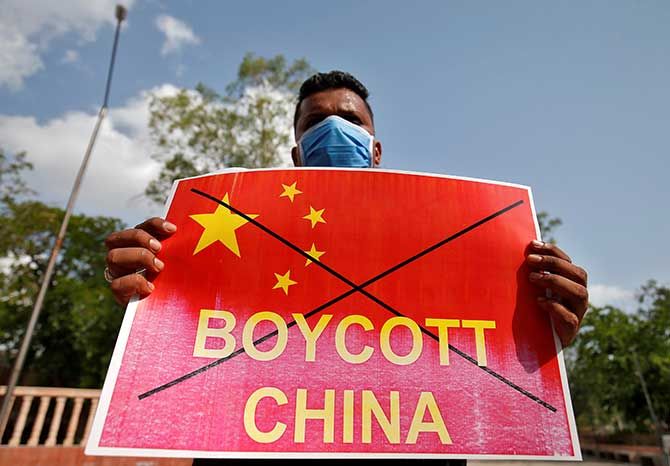
The world has suffered because of COVID-19.
Most nations rightly blame China for this misfortune.
Instead of being sensitive to these feelings China is aggravating them by its aggressive behaviour.
The world wants to see China get a bloody nose and if India can do it, it has the world's full backing.
If the Chinese read the history of the rise of the great powers they would notice that 'soft power' is one of the major ingredient of their rise.
The 18th and 19th centuries saw British domination of the world.
It was said that the sun never set on the British empire as there was always some part that was in daylight!
Vast swathes of populations including in India accepted British rule willingly and collaborated with them.
The British did have certain sterling qualities and principles.
For instance, as early as 1776 when it was early days of British rule in India, Edmund Burke, the British liberal, lambasted the British empire and its rule in India over people far more civilised than us, as he put it.
Many British colonies retained the language and institutions that the British built even after gaining independence.
The British empire flourished because of notions of the rule of law and individual rights as much as due to their military prowess.
The latter half of the 20th century saw the rise of the US and Soviet Union as the two superpowers.
In their case too, the power of their ideologies, freedom and democracy for one and socialism and rule of the proletariat for the other were key ingredients in their rise.
China as a rising superpower is totally bereft of any element of 'soft power'.
Its notions of the Middle Kingdom and the Han race's superiority has no takers in the world.
Aggression and military power are not enough to reach the status of a world power as Hitler's Germany found to its cost.
Maybe China learns this lesson in the 21st century.
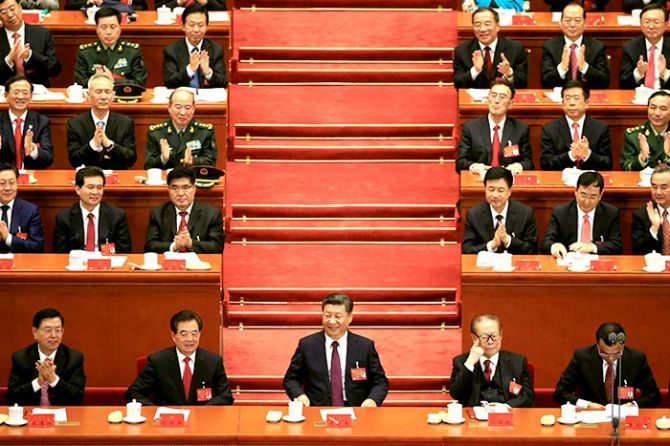
India and the world must make a clear distinction between an aggressive and dictatorial Communist party of China and the ordinary Chinese people.
The ordinary Chinese people, a full 40% of whom are practicing Buddhists, are hardworking and peace loving.
It is unfair to blame them for the sins of the ruthless party that rules China.
There is certainly an Asian civilisational ethos that is different from the West.
It is this that India and China share.
One had thought that minor disputes over a remote border would not hinder co-operation between the two Asian giants.
China has betrayed this common cause when it went back on the pledge 'We have differences, but will not let them become disputes'.
Colonel Anil A Athale (retd) is a former Chhatrapati Shivaji Chair Fellow at the United Services Institute of India.
Feature Production: Ashish Narsale/Rediff.com



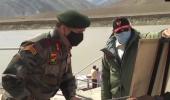







 © 2025
© 2025